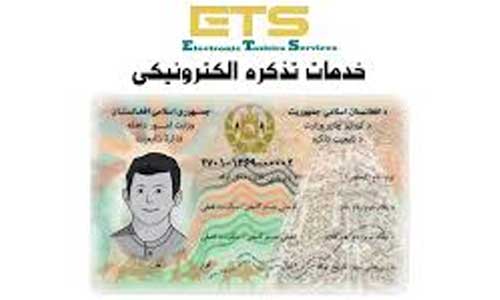Last week, the cabinet of Afghan government approved adding name of mothers on national identity card. It seems that this action has happened in response to a social media campaign which was asking “where is my name”. The positive response of Afghan government has warmly welcomed by women and women rights community hoping to eradicate the discriminatory custom from Afghan society. Hereafter, the women’s name can appear on their children’s birth certificates and other government-issued identification while using the name of women was taboo in Afghan custom. For example, the name of women did not appear on invitation card for her wedding parties, birth certificates of their children, national Identity card and so on. In public arena, It was also taboo to use name of someone’s sister, mother, wife or daughter and so women were referred to as the mother, daughter or sister of the eldest male of their family, and legally only the father’s name were recorded on identification documents. This custom had a practical impact when the fathers were absent or died. For example, it was hard for a single mother to obtain identity documents for her children or enroll their children in schools. Therefore, three years ago, some of the Afghan women rights’ activists launched a campaign through social media to eliminate this taboo from Afghan legal and social culture.
According to women rights activists, the inclusion of women’s name in legal documents are considered of the most important demands as it was consistently raised in social media networks and Afghan community. Although the new government action may not have a quick impact on condition of women’s life in the country, it is considered a good step towards structural violence and women identity in the country. The women rights activists believe that this action will promote the political and social identity of women in the country. Politically, it also shows the government commitment towards promotion of women status in the country while the Taliban had and have a very inflexible stance against women in Afghanistan. As the international community and international organization have always persisted on ensuring women’s rights and empowerment in Afghanistan, it may draw the attention of international community towards women in the upcoming talks with Taliban. So, being in the eve of entering peace talks with Taliban, it will greatly highlights the differences of Taliban and Afghan government position towards women rights in the country.
Given the Taliban’s dark report card about women in the past, the more nearing to the upcoming talks or return of Taliban to joining or taking power, the more image of Taliban’s violence is highlighted in minds and memories of Afghan women in the country. In 1995 when Taliban took over the power, the freedom of women, freedom of media and freedom of speech entirely faded out. The first and most important right that women lost was the right to education. Schools and other educational centers came to be merely for boys. No woman could step out except she was fully covered in Hijab. They were not allowed to work. They were only like dolls behind walls. It was the worst for women that Taliban laws provide men with the chance to abuse women. In a metaphor one can say “they were only cards in the hands of male players” or they were the walking chocolates which could come out of the cover only when men allowed them. In a sense women were aliens and refugees of the time as no one let them educate and seek the ideal life. No law existed to give women the fundamental rights, the right to liberty, equality and pursuit of happiness. It is bad enough when a corrupt and cruel regime takes over the power but the worst is when the subjects adapt with the cruelty. Unfortunately it was happening during the Taliban period in Afghanistan. In addition to this, liberty, equality and democracy did stop at that time and gave way to fundamentalist, sexist, prejudice and traditional absolutist. Dignity for women was defined: to stay hidden and protect themselves from strange gazes. The socio-political functions of women had been cut to zero.
Despite the past bitter experience, the Afghan government has always assured that the fundamental achievements of women will not be dealt. Out of women right’s achievements in past two decades, the Law on the Elimination of Violence against Women and the Law on the Elimination of Violence against Women and Children are of two important and credible national commitments that require the Afghan government to take serious action in order to combat discrimination and violence against women. Enactment of these two laws were of the most fundamental steps that Afghan government has taken in past two decades to eliminate discrimination and social violence against women. Nevertheless, there are some concerns that the top decisions makers are more interested in the political peace rather than social peace. According to experts, no peace process is perfect without social peace, social justice and social inclusiveness. Therefore, the current peace process without participation of women is neither fair and nor inclusive. Women comprise half of the society, and more vulnerable by Taliban. Hence, their rights and freedom must not be dealt at any cost. The government and negotiating team is responsible to safeguard all democratic values attained within last 20 years by sacrifices of numerous national security forces.
Home » Opinion » The Inclusion of Mothers’ Names in National ID: A Big Step Towards Women Rights
The Inclusion of Mothers’ Names in National ID: A Big Step Towards Women Rights
| Mohammad Zahir Akbari

